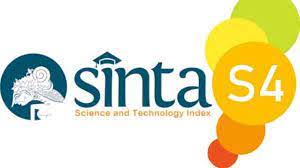Strategic Planning dalam Perspektif Teologi, Filsafat, Psikologi, dan Sosiologi Pendidikan
Abstract
This article tries to explain the strategic planning of education in the perspective of Islamic theology, philosophy of reconstructionism, social psychology, and structural-functional sociology. Articles based on library research. Strategic planning that relies on the work of leaders (managers) is the embryo of strategic management, and therefore this article tries to discuss it with the Wheelen-Hunger theoretical approach of strategic management and Ki Hajar Dewantara's trilogy of leadership. The result is that educational strategy planning requires a leader who is agile as well as civil servant.
Copyright (c) 2022 Agus Salim Chamidi

This work is licensed under a Creative Commons Attribution-ShareAlike 4.0 International License.
This journal provides immediate open access to its content on the principle that making research freely available to the public supports a greater global exchange of knowledge.

Komunika by http://ejournal.iainu-kebumen.ac.id/index.php/An-Nidzam/ is licensed under a Creative Commons Attribution-ShareAlike 4.0 International License
Authors who publish with this journal agree to the following terms:
- Authors retain copyright and grant the journal right of first publication with the work simultaneously licensed under a Creative Commons Attribution License that allows others to share the work with an acknowledgement of the work's authorship and initial publication in this journal.
- Authors are able to enter into separate, additional contractual arrangements for the non-exclusive distribution of the journal's published version of the work (e.g., post it to an institutional repository or publish it in a book), with an acknowledgement of its initial publication in this journal.
- Authors are permitted and encouraged to post their work online (e.g., in institutional repositories or on their website) prior to and during the submission process, as it can lead to productive exchanges, as well as earlier and greater citation of published work (See The Effect of Open Access).










1.png)


